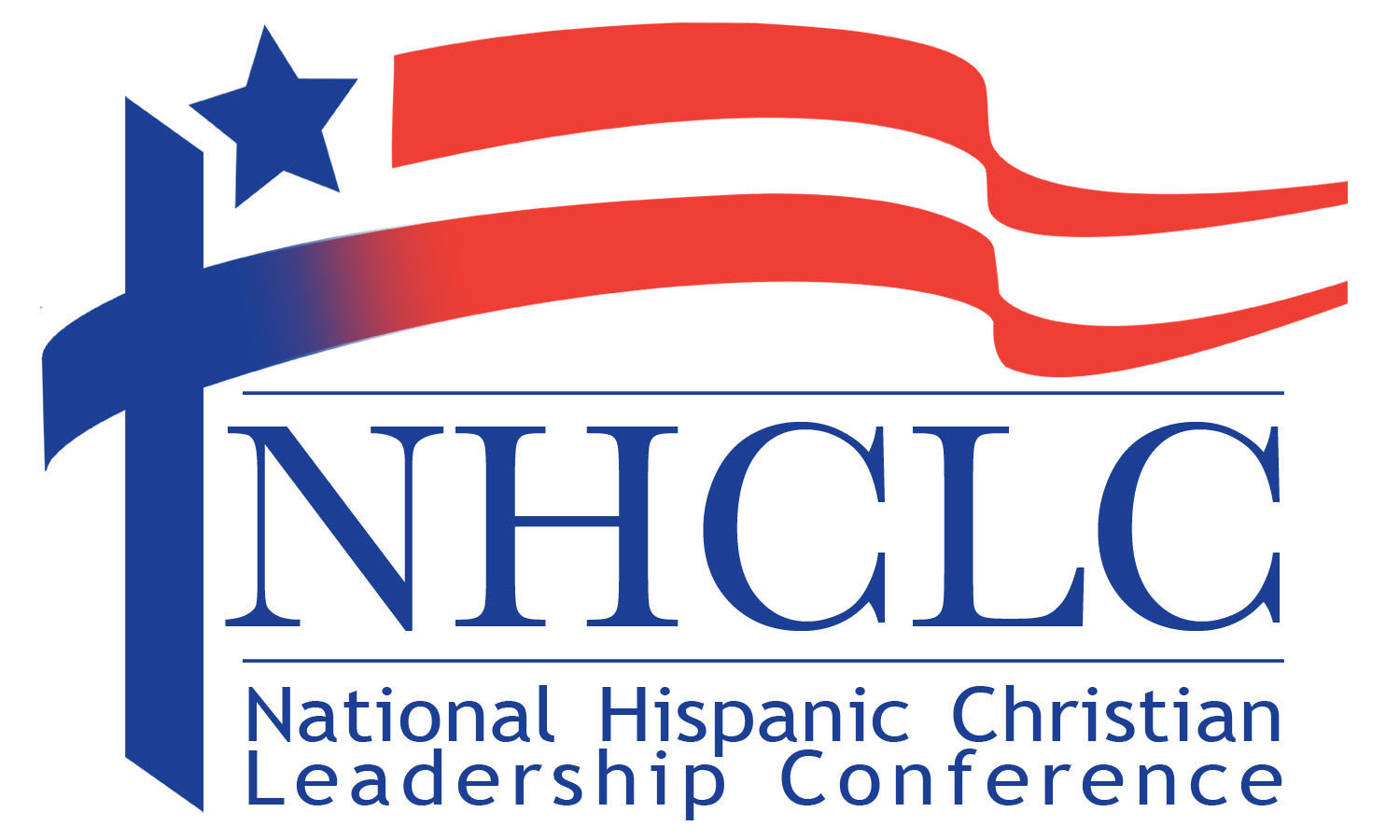 National Hispanic Christian Leadership Conference logo. (PRNewsFoto/The National Hispanic Christian Leadership Conference)
National Hispanic Christian Leadership Conference logo. (PRNewsFoto/The National Hispanic Christian Leadership Conference)
CEDARVILLE, Ohio/PRNewswire/ — The fourth-annual National Education Summit was held Oct. 16 on the campus of Cedarville University, co-hosted by the school and The Alliance for Hispanic Education, a directive of the National Hispanic Christian Leadership Conference (NHCLC). The nearly 100 academic and church leaders in attendance offered practical solutions to education challenges facing the Latino communities.
“This conference represents a turning point experience for Latino education,” said Dr. Gus Reyes, Director of the Hispanic Education Initiative/Affinity Ministries for the Baptist General Convention of Texas and COO of NHCLC. “It raises the bar for what we are able to achieve through executive leaders and presidents of universities, academics and pastors.” Reyes hoped that the conference would “provide tools and a biblical basis as we work together to minimize the dropout rate in our communities.”
Considering that Latinos represent 15.1 percent of the total population, but make up 38.6 percent of all college dropouts, the Summit called for closer cooperation between churches and universities in reducing the college dropout rate. Solutions discussed included a proposal for Hispanic centers at universities to assist students in adjusting to the college campus environment — academically, culturally and socially.
Reyes presented a study from the Barna Group discerning that 84 percent of Hispanics in America self-identify with the Christian faith. With Hispanic Americans becoming an increasingly dominant force in shaping Christianity across the nation, Reyes asserted that it is imperative to understand the faith, values and priorities of this group.
The ethnically diverse group of attendees heard presentations from nationally prominent speakers about challenges facing not only students, but also educators. In addition to Reyes, these included Dr. Carlos Campo, former President of Regent University and Chair of The Alliance for Hispanic Education; Dr. Jesse Miranda, NHCLC Emeritus CEO and Founder of the Jesse Miranda Center for Hispanic Leadership; Harold Smith, President and CEO of Christianity Today; Mike Haley, Program Director for Focus on the Family’s Raising Highly Capable Kids; and Jesse Rincones, Executive Director of the Hispanic Baptist Convention of Texas.
Speakers also examined the challenges Hispanic students face in the American education system. A presentation from College Board representatives Steven Colon and Kathleen Porter Magee outlined statistics about the high percentages of Hispanic high school students whose 10th and 11th grade PSAT scores indicate that they are capable of doing Advanced Placement work, but who often do not have access to such courses. Additionally, Latino students frequently face unnecessary language barriers that complicate their comprehension of test material.
“Our hope is to give all students, but particularly Latino students, access to the language of power — to the academic vocabulary students need,” Magee said. She further explained that the SAT test and traditional literature textbooks use “esoteric” vocabulary, words that are “perfectly good to know” but “are not words that our children need to master to prepare for the rigors of college and careers.”
A presentation by NHCLC education specialist Esmeralda Sanchez brought attention to College Results Online, an Internet service offered by the Education Trust that helps Hispanic students and their parents “make data-driven decisions” on which colleges would extend their children the best value, especially with regard to graduation rates. The service also provides college and universities a means to identify gaps in serving underrepresented students.
Sanchez cited an example of Florida State University, which altered its policies to accommodate such students. By moving the offices of academic advisors from the library to the cafeteria, and changing visiting hours from a traditional 8-to-5 working day to a 12-8 p.m. schedule, academic advisors better supported students who worked at part-time jobs off-campus, as a majority of Latino students do.
Sanchez says the university “saw a huge influx of students” into the advising offices. “As the FSU example indicates, it takes nontraditional means to serve nontraditional students,” she added.
Jesse Rincones called for closer cooperation between churches and universities in reducing the dropout rate, citing a sociological study finding that frequent religious attendance “correlates with lower dropout rates and greater school attachment.”
“The church has been portrayed as the enemy of education, but history shows us that the Christian church has been one of education’s greatest allies,” Rincones added. “And the local church will continue to be the most unlikely and underutilized ally of Hispanic Education.”
Reyes observed that Ricones’ revelations about partnership potential between pastors and educators was a real ‘wow’ moment for everyone at the Summit. “It was highly valuable to see how important it is for the church to work hand-in-hand with universities to set a crucial foundation for students’ academic careers,” he said.
The Alliance for Hispanic Education
A subsidiary of the Hispanic National Association of Evangelicals, the Alliance for Hispanic Education was established to serve as the facilitative platform for the Academy in service to America’s largest ethnic demographic. Three preeminent universities make up the alliance – Oral Roberts University, senior partner; Regent University, graduate partner; and Liberty University, online education partner.
National Hispanic Christian Leadership Conference
The NHCLC is the largest Hispanic Christian organization representing millions of Evangelicals and more than 40,000 U.S. churches. Seeking to reconcile evangelist Billy Graham’s message of salvation with Dr. Martin Luther King, Jr.’s march of prophetic activism, the NHCLC emphasizes “7 Directives” of Life, Family, Compassionate Evangelism, Stewardship, Justice, Education and Youth. For additional information, visit http://www.nhclc.org.
SOURCE: National Hispanic Christian Leadership ConferenceRELATED RESOURCES
New Survey: 1-in-5 Americans are “Religious Progressives”
American Bible Society and NHCLC join forces to combat Biblical illiteracy in Hispanic communities


